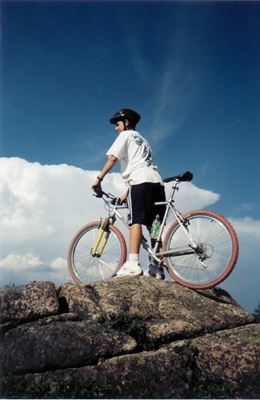All Nonfiction
- Bullying
- Books
- Academic
- Author Interviews
- Celebrity interviews
- College Articles
- College Essays
- Educator of the Year
- Heroes
- Interviews
- Memoir
- Personal Experience
- Sports
- Travel & Culture
All Opinions
- Bullying
- Current Events / Politics
- Discrimination
- Drugs / Alcohol / Smoking
- Entertainment / Celebrities
- Environment
- Love / Relationships
- Movies / Music / TV
- Pop Culture / Trends
- School / College
- Social Issues / Civics
- Spirituality / Religion
- Sports / Hobbies
All Hot Topics
- Bullying
- Community Service
- Environment
- Health
- Letters to the Editor
- Pride & Prejudice
- What Matters
- Back
Summer Guide
- Program Links
- Program Reviews
- Back
College Guide
- College Links
- College Reviews
- College Essays
- College Articles
- Back
The Other Wes Moore by Wes Moore
What determines the paths of our lives?
This question has been stuck in my mind since I first picked up this intriguing memoir—one that has miraculously honed in on two lives that started in surprisingly similar ways but have grown to two extremes. What are the chances that two African American young men who share the same name are born within a year of each other in similar Baltimore neighborhoods? What are the chances that one is sentenced to a life in prison at 23, and the other becomes a Rhodes Scholar and a business leader? This one-in-a-million scenario began in the 1990s, in a prosperous city with a double life. While Baltimore was the largest independent city in the United States, it was also home to loitering drug addicts and organized gangs of drug dealers. Annual counts of over 300 murders perplexed the city’s leaders and the countless families shattered to pieces by the aftermath. This isn’t my story, but it has opened my eyes to the countless directions one’s path could head, and just how important yet insignificant each step can be.
Wes Moore and Wes Moore were kids born into the turbulent streets of Baltimore, where they were pushed to get a decent education, but where intervening opportunities seemed much more convenient. Teenagers were entering the drug game before they enrolled into middle school, and they were becoming parents before even reaching high school graduation. Many simply dropped out and became full-time drug dealers, constantly on the lookout for policemen while pressured for money to put food on tables. Both young men faced these troubles, but one caved in while the other was sent to military school. From that point on, their paths diverged to the point of no return. Like the author himself asserts, there is no definite explanation for what rendered two people with such similar backgrounds in such dissimilar positions. Instead, every step of the way altered their paths subtly, until an accumulated gap appeared.
Parental education is essential to a child’s development. The author Wes Moore had a pair of college-educated parents that instilled in him traits that would shape him into an upright member of society. A detail I recall is how he was taught to respect and never beat women at the early age of 3, an important message many parents are failing to underscore to their children even today. Although both men lost their fathers at young ages, they did so for completely different reasons. Wes lost his father to a rare disease early on, but the parental affection from his father’s side remained to motivate and inspire him. On the contrary, the other was plainly neglected and grew in a single-mother family with a notorious drug dealer as a brother. Simply being aware of intentional abandonment as opposed to inevitable separation can lead a teenager to feel deprecated and insignificant. The other Wes Moore was most likely unconsciously disheartened by his irresponsible father and misguided by his brother, which led to his self-indulgent behavior and, ultimately, surrender to criminality.
I feel particularly shaken by this story because an essential proportion of my childhood took place in the streets of Baltimore, merely a decade after these troublesome incidents went down. I can’t begin to imagine the safety hazards and life choice mishaps that could have turned me for the worse. There are days when I witnessed violent assaults on the streets, or homeless drunkards wandering around with broken bottles in hand. Shivers are sent up my spine when I contemplate how I must have been too young to understand drugs and alcohol, and how they could have been in close proximity to my neighborhood. My story is nothing like that of either Wes Moores, but their beginnings are geographically similar. This has induced me to consider whether the environments I have been raised in have had any tangible impacts on my personality or even my future prospects. The logical answer is positive, but it contradicts reality—I fail to attribute any specific character to past events.
What I’ve gained from this read is the realization that I most definitely will make many mistakes in the future, some of which might severely harm my prospects. But I will also have many chances to steer myself back onto the right path, so there is no need to be preoccupied with perfecting every unimportant detail. The story of Wes Moore exemplifies how right decisions, self-discipline, and education can correct mistakes made early in life. Hence the answer to my own question: the paths of our lives are predominantly determined by our choices. How these critical decisions are made is determined by what we stand for and our expectations for ourselves. How these are formed depends on you.

Similar Articles
JOIN THE DISCUSSION
This article has 0 comments.
